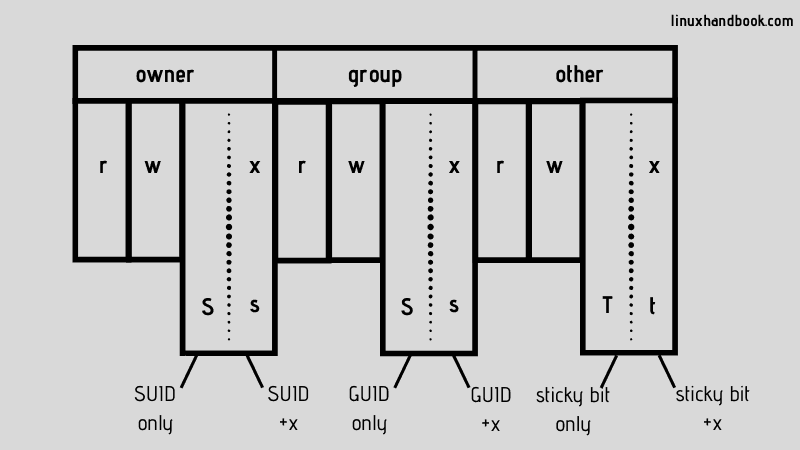- Category: Pwn
- Points: 9x?/100
- Captures: No Idea
- Challenge Helpers: Sean
I don't remember the exact challenge description, but it had to do with how the executable had SUID bit set, which allowed you to run commands with the same permissions as the owner of the file. In our case, since the owner of the insecure file is root (UID 0), this meant that we could also read the /flag.txt file that was also owned by root (At least, I think it was root. I cannot remember).
First, let's take a look at what setting the SUID bit on a file does:
With a typical file, it would probably have the following permissions:
-rw-rw-r-- :
- The first
-represents that this is a file (and not a directory, which will be represented by ad) - The next 3 characters represent the permissions that the owner of the file has:
r: Able to Readw: Able to Write-: No other Permissions (usually populated by anxif the file is executable)
- The following 3 characters represent the premissions that the group of the file has:
r: Able to Readw: Able to Write-: No other Permissions (usually populated by anxif the file is executable) The final 3 characters represent the permissions that everyone else has on the file:r: Able to Read-: Unable to Write-: No other Permissions (usually populated by anxif the file is executable)
However, there are other special bits that can be set for that third bit of each set of permissions (User/Group/Others):
S:setuid/setgidbit - people accessing the file has permissions that the owner/group of the file has- Applicable to Owner and Group Permissions for SUID and SGID respectively (Set User ID/Set Group ID)
s:setuid/setgidbit with executable permissions - people accessing the file can also run the file with the permissions of the owner/group- Applicable to Owner and Group Permissions for SUID and SGID respectively (Set User ID/Set Group ID)
T: Sticky bit - Allows only the owner of the files/directories within to create/edit files (usually used in/tmp)- Applicable to directories, shows up in "others" permission
t: Sticky bit with executable permissions - Allows only the owner of the files/directories within to create/edit/execute files (usually used in/tmp)- Applicable to directories, shows up in "others" permission
The following image (and the linked article) gives a pretty good summary:
- IDA64
Given the binary to download, we are able to use IDA64 to disassemble the insecure binary, as we can see below (Thanks to Sean for teaching me this - I had no idea how to start):
From the disassembly, we can see that the program calls the id command with a systemcall (which...you would also be able to see if I kept a screenshot of the original command output...oops!)
Once I spent 5 hours pulling my hair out and trying to understand what this program was trying to do and trying to understand what SUID was for, I finally realised that I could just...hijack the id application!
Going into /tmp, which is usually a directory that anyone could write files into, I decided that it was here that I will store my temporary application that could read the file at /flag.txt when id was called.
However, I realised that there were no text editors on the system...which made me rethink how I wanted to approach this challenge. Until I realised that I could simply cat the contents of my file into a file using stdout redirection and a version of cat that supports newlines (the shell was bash, after all)
The following shell program was written and used (formatted for better readablility):
#!/bin/bash
echo "HELLO THIS IS THE SCRIPT"
cat /flag.txtThe screaming was necessary. I assure you.
But we did find our flag!
DSO-NUS{b4fcfe57b8d2b05ff3310c663a0497b1026cf039baeee18669957152cdc276da}


